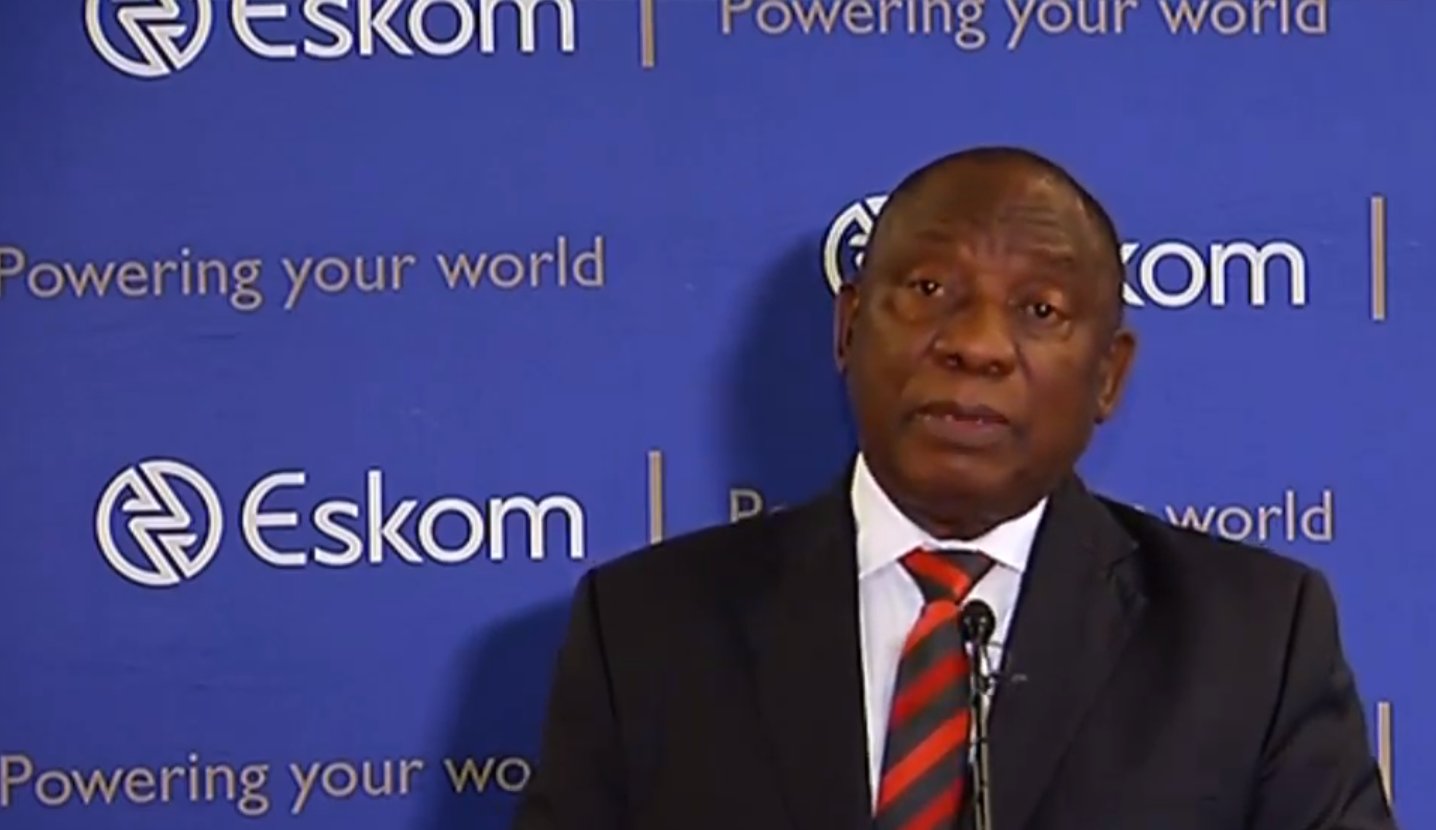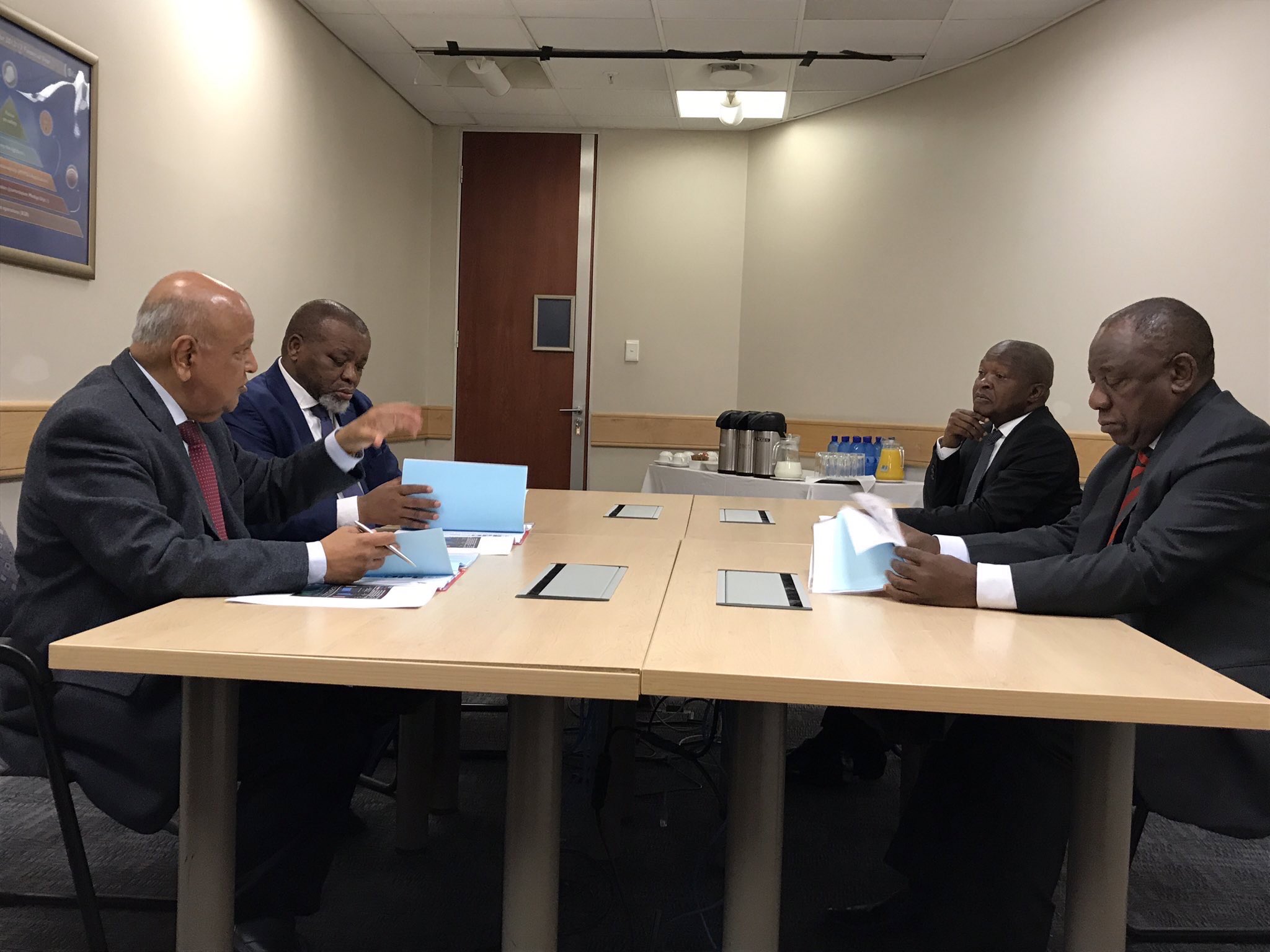Riyaz Patel
President Cyril Ramaphosa said sabotage is among the factors that has led to the recent rolling power cuts.
The President said that while a number of factors contributed to the recent rotational power cuts, including heavy rains, unplanned outages and the age of power stations, about 2000MW of power was also lost due to an act of sabotage.
“What has also come out as a great concern is that there has been a measure of sabotage, sabotage that has lead to the loss – during this period – of 2000MW, where someone in the Eskom system disconnected one of the instruments that finally lead to one of the boilers tripping, and us losing as much as 2000MW.”
The president was speaking after an emergency meeting with with Mineral Resources and Energy Minister Gwede Mantashe; Public Enterprises Minister Pravin Gordhan; and the Eskom board and management at Eskom’s headquarters at Megawatt Park in Sandton.

Ramaphosa also announced that all leave by Eskom employees and executives had been cancelled until January to ensure that the system was restored to stability.
“All leave is cancelled. No one goes on leave,” the President said.
He added that from December 17 to January 13 there would likely not be load shedding.
South Africa has been rocked by a series of rolling blackouts, and on Monday, the embattled power utility announced stage 6 load-shedding – the highest stage it has initiated since the implementation of enforced blackouts.
Analysts have meanwhile warned that the ongoing power outages will place South Africa in even further economic trouble.
Economist Iraj Abedian said if this trend continued, South Africa could go into a recession.
“If it continues like this, no mine can operate with this ‘don’t call me, I’ll call you when we have electricity’. No factory, business, financial services can run when there’s no power.”
Market research company Intellidex said the effects of sustained load shedding may slash SA’s 2019 GDP growth to just 0.3% from 0.4%.

Ahead of the meeting with the Eskom board, Ramaphosa and his deputy David Mabuza consulted with Mantashe and Gordhan – the two ministers tasked by the President to deal with the ongoing energy crisis.
Both ministers, however, have come under fire from the Congress of South African Trade Unions (COSATU)
Gordhan and Mantashe have “demonstrated they do not understand the degree of frustration faced by South Africans,” said COSATU General-Secretary Bheki Ntshalintshali on the sidelines of the South African Communist Party’s (SACP’s) special national congress.
Mantashe had said he should not be “blamed” him for Eskom’s woes, pointing out that the power utility is actually part of Gordhan’s area of responsibility.
Eskom Chief Operating Officer (COO) Jan Oberholzer said “South Africa’s national electricity grid has been abused for too long and both Eskom and the country are now suffering the consequences of a management approach that all but ignored the health of the system.”

The beleaguered power utility said it’s suffering from multiple system failures at power stations around the country brought about by poor planning, old and malfunctioning infrastructure, an acute lack of skills, and a loss of institutional expertise.

Internal Eskom status updates reveal that a number of power stations across the country – including the Koeberg nuclear power station, three turbines at two open cycle gas turbines on the west and south coasts, and various power stations in the northern parts of the country – have recently suffered a series of breakdowns, shutdowns and planned outages.
